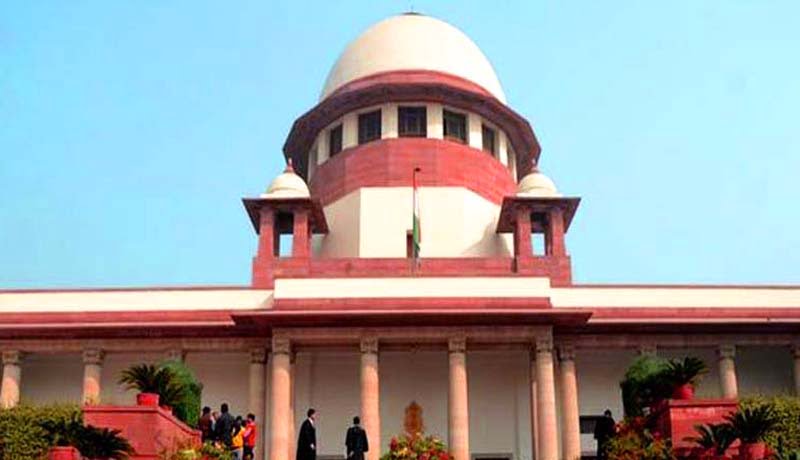Application of Mind is an essential thing in deciding a Case in relation to revenue; Supreme Court [DOWNLOAD JUDGMENT]

Supreme Court – excise-duty – taxscan
Supreme Court – excise-duty – taxscan
The Supreme Court recently decided that there must be application of mind by the Tribunal while deciding a case. The Bench comprising of Justice Dipak Misra and Justice N V Ramana opined this while deciding the case, Commissioner of Central Excise v. Hindustan National Glasses & Industries Ltd. The highlights of the judgment are given below.
M/s. Owens Brockway (I) Pvt. Ltd., was the predecessor-company of the Hindustan National Glass and Industries Limited, who was the respondent in the present case.On august 2002, show cause notice was sent to the predecessor-company by the Commissioner of Central Excise, Pune-I, alleging short payment of duty on its products, that is, printed glass bottles, by under-valuing the same at the time of clearance from its factory inasmuch as it did not add “additional consideration” received from its customers.
After the reply to the show cause was received, the adjudicating authority passed an order on 28th November, 2003, making a demand of Rs. 33,91,934,00/- as penalty under Section 11A(1) and 11AC of the Central Excise Act, 1944. Being grieved by the aforesaid order of the adjudicatingauthority, the respondent-assessee preferred an appeal before the Customs, Excise and Service Tax Appellate Tribunal, West Zonal Bench, Mumbai.On 2007, due to difference of opinion among the members of the Tribunal, the matter was referred to a third member. The Judicial Member took a decision in favour of the assese and therefore, the CCE preferred an appeal before the Supreme Court.
The respondent-assessee, during the argument accepted the fact that they had obtained certain advance sums from some companies/users to supply the bottles and on that count it had granted 3-4 per cent discount.Their contention was that when no evidence was adduced by the revenue at any point of time and the law is settled that the onus is on the revenue to establish that there has been depression of assessable value, the majority view of the tribunal cannot be found fault with. The appellants, on the other hand, submitted that the documents were produced before the adjudicating authority as well as the tribunal to show the nature of advance and the manner of transaction from which it is demonstrable that there has been depression of the assessable value.
The Supreme Court refused to accept the argument that the revenue has failed to adduce any material evidence to prove the fault of the respondent-assessee. The concerned Commissioner has taken note of the statement made by the Manager (Sales) of the assessee-Company. An aspect raised relates to percentage of total sales made to two companies, but the core issue is whether there was a depression of the sale price on account of receipt ofadvance. The Court while set aside the order of the Tribunal and directed the Commissioner of Central Excise to reconsider the matter for fresh disposal. While delivering the judgment, Deepak Misra J. expressed an opinion that “in the present case, there has to be application of mind by the tribunal regard being had to the amount of money paid by purchasers and what is the effect of the sales made to the two companies in percentile terms, whether this had the effect of depressing the sale price. The onus would be on the revenue. That being the thrust of the matter, liberty is granted to the revenue to produce the documents in this regard to discharge the onus.”
Read the Judgment here.


